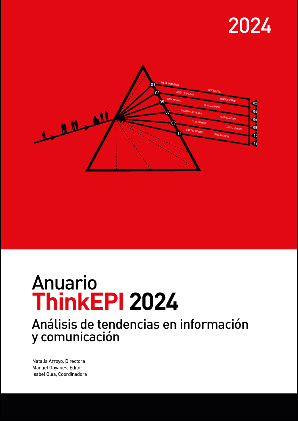X/Twitter: A space for deliberation or disinformation?
DOI:
https://doi.org/10.3145/thinkepi.2024.e18a39Keywords:
X, Twitter, Social media, Deliberation, Disinformation, USA presidential electionAbstract
In its early days, Twitter was created as a microblogging platform with the aim of allowing users to share information and learn about what was happening on the other side of the world. However, the platform’s acquisition by Elon Musk and its transformation into X have changed the course of this social network, which has now become a space for the dissemination of hoaxes and conspiracy theories. The algorithm rewards and amplifies this content, allowing it to reach a large number of users. A clear example of this is the 2024 United States presidential election, where polarization and disinformation have defined the electoral campaign on X. This situation has led some users, including media outlets and political actors, to leave the platform, sparking an intense debate about whether to stay on it or abandon it.Downloads
References
Alonso-Muñoz, Laura; Casero-Ripollés, Andreu (2024). “El rol de la ciudadanía en la conversación política en X. El caso de la #MocionDeCensura de 2023 en España”. Revista mediterránea de comunicación, v. 15, n. 2, e26829. https://www.doi.org/10.14198/MEDCOM.26829
Alonso-Muñoz, Laura; Miquel-Segarra, Susana; Casero-Ripollés, Andreu (2016). “Un potencial comunicativo desaprovechado. Twitter como mecanismo generador de diálogo en campaña electoral”. Obra digital, n. 11, 39-58. https://raco.cat/index.php/ObraDigital/article/view/315496
Borbath, Endre; Hutter, Swen; Leininger, Arndt (2023). “Cleavage politics, polarisation and participation in Western Europe”. West European politics, v. 46, n. 4, pp. 631-651. https://doi.org/10.1080/01402382.2022.2161786
Center for Countering Digital Hate (2024). Musk’s political post. https://counterhate.com/wp-content/uploads/2024/11/241031-Musk-Political-Posts-Value-NOTE.pdf
Gerbaudo, Paolo (2012). Tweets and streets. Social media and contemporary activism. Londres: Pluto Press. https://doi.org/10.2307/j.ctt183pdzs
Harfoush, Rahaf (2010). Yes we did: cómo construimos la marca Obama a través de las redes sociales. Barcelona: Paidós.
Hermida, Alfred (2012). “Tweets and truth: Journalism as a discipline of collaborative verification”. Journalism practice, v. 6, n. 5-6, pp. 659-668. https://doi.org/10.1080/17512786.2012.667269
Hendricks, John A.; Denton, Robert E. (Eds.) (2010). Comunicator-in-chief: How Barack Obama used new media technology to win the White House. Lanham: Lexington Books. ISBN: 978 0739141052
Jungherr, Andreas (2014). Twitter in politics: a comprehensive literature review. https://ssrn.com/abstract=2402443
Rogers, Richard (2014). “Political research in the digital age”. International public policy review, v. 8, n. 1, pp. 73-87.
Van-Dijck, José (2011). “Tracing Twitter: the rise of a microblogging platform”. International journal of media and cultural Politics, v. 7, n. 3, pp. 333-348. https://doi.org/10.1386/macp.7.3.333_1
Downloads
Published
How to Cite
Dimensions


